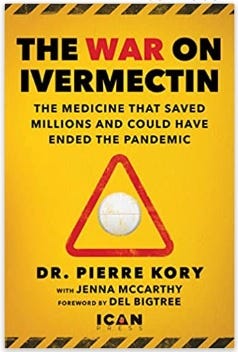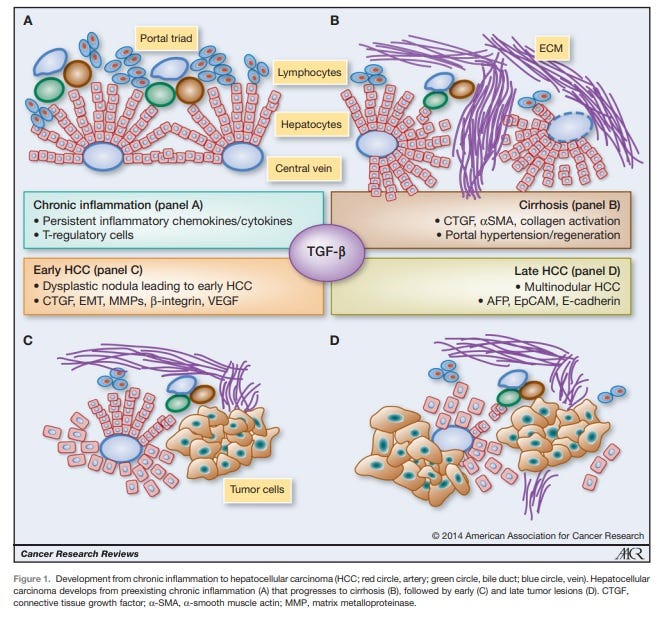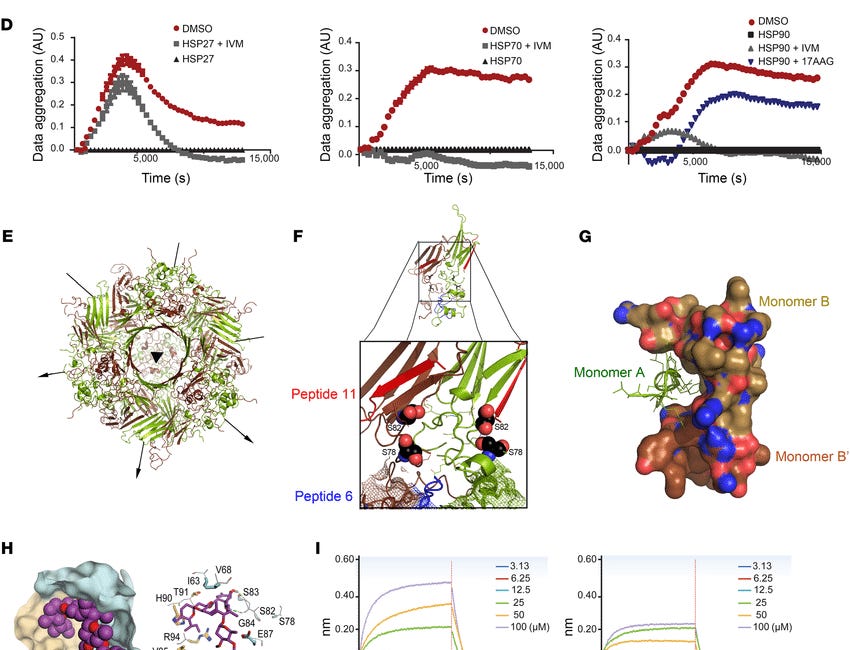by 2nd Smartest Guy in the World, 2nd Smartest Guy in the World:
 If you think Big Pharma had good reasons to censor ivermectin during COVID-19 how about now when we know it is likely effective against all chronic diseases associated with aging?
If you think Big Pharma had good reasons to censor ivermectin during COVID-19 how about now when we know it is likely effective against all chronic diseases associated with aging?
This Substack recently wrote about the powerful anticancer properties of Fenbendazole:
TRUTH LIVES on at https://sgtreport.tv/
PetDazole: Pharmaceutical Grade Pure Fenbendazole
Just like they went after one of the very best cures for PSYOP-19 in Ivermectin… …the Medical Industrial Complex does not want the truth to come out about a powerful cancer cure in Fenbendazole. Thanks to the deployment of the DEATHVAX™, we are now seeing parabolic increases in “turbo cancers.” Those responsible for these slow kill bioweapon injections…
I also mentioned in passing that one of reasons Ivermectin was so viciously maligned and suppressed was that if society were taking it to cure PSYOP-19 one of the side effects would be “sudden” plummeting cancer rates, and thus BigPharma et al. went all out to destroy this Nobel prize miracle drug.
What would happen if one did a combination therapy for both the prevention and treatment of cancer using BOTH Ivermectin and Fenbendazole? The synergistic pairing would be far more effective than just using one of these miraculous drugs.
For many years now the cure for cancer was in plain sight right in front of everyone all this while, yet society was socially engineered to mindlessly “Trust the Science” such that they would undergo incredibly expensive (read: exorbitant profit margins) medical treatments that are toxic and deadly, instead of taking two inexpensive (read: minuscule profit margins) drugs that have zero adverse side effects.
It also turns out that Ivermectin is a powerful anti-aging drug!
This is precisely why the war on Ivermectin (and soon Fenbendazole) has only just begun…

Dr. Paul Marik recently quoted a prospective clinical trial where the participants were given 4000 international units of Vitamin D, omega 3’s and told to exercise and the risk of cancer dropped 50%.

In another post, Dr. Marik says it is highly unlikely cancer is genetically determined.
I wanted to talk about both in this post.
In July 1994, I published a new theory of cancer in Molecular Carcinogenesis which implied while tumors were genetically determined, the malignant nature of tumors (ie., the thing we call cancer) was not [1].
This notion that malignancy was a phenotype and not a genotype was heretical at the time and so the paper was ignored (only the editors of Molecular Carcinogenesis and myself were excited). It was an exciting idea because it meant one can control the malignant potential of tumors pharmacologically. No more need for slash and burn, which I have always regarded as barbaric.
However, subsequently it became widely accepted that the malignant phenotype of cancers called ‘epithelial mesenchymal transition’ (EMT) was real [2]. So I was vindicated, although it seems no one noticed except for myself.
The reason I had proposed cancer as a phenotype was that I had just finished the characterization of the 67 kD alpha-fetoprotein (AFP) receptor for my Ph.D. thesis [3]. The AFP receptor (AFPr) was expressed on macrophages and highly overexpressed on the common cancers the adenocarcinomas (breast, prostate, lung, colon, etc) implying a dual role in immunosuppression of the host and in tumor malignant potential. In fact I wrote the theory to explain how immunosuppression of the host relates to tumor malignant potential.

Figure 1. From Giannelli G et al, Cancer Research 2014 [4]. AFP is recognized as a malignancy progression factor in a very common cancer in the world, hepatocellular carcinoma (HCC) often associated with a viral origin.
Thus, the malignant potential of tumors known as cancer was amenable to pharmacological intervention.
AFP exists in active and inactive states. Things that bind to and inactivate AFP (zinc, DHEA, flavonoids etc) are entities that may help promote innate immunity (of macrophages) and which also diminish the malignant potential of tumors.
At the time I called this malignant phenotype of cancers “anti-cellular senescence” [1]. This was because the tumor was refractory to new signaling and thus changes were not visible, because AFP binding to the AFPr on tumors blocked incoming signals. So it seemed the tumor did not age.
While the malignant phenotype is now recognized as ‘epithelial-mesenchymal transition’ (EMT), fortunately Dr. Robert Weinberg has also defined it to block senescence [5] or is also a phenotype involving anti-cellular senescence (whew!).
Then in 2015, I wrote the new immunosenescence paradigm of macrophages published in Discovery Medicine which attempts to explain the cause of chronic illness associated with aging including diseases such as cancer and cardiovascular diseases [6]. Subsequently I validated this paradigm specifically for explaining the initiation and progression of cardiovascular diseases [7] (it is not cholesterol but elevated stress does increase cholesterol).
Read More @ 2ndSmartestGuyintheWorld.com




